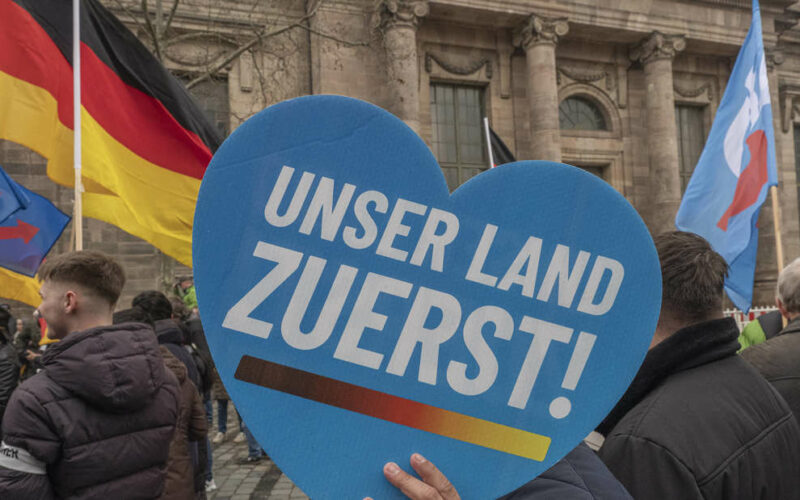The far-right Alternative für Deutschland (AfD) saw significant gains among young voters in the recent elections. For the first time, 16- and 17-year-olds were allowed to vote in a national poll, thanks to a reform championed by left-leaning parties. While young Germans overwhelmingly supported the Greens five years ago, this time, those under 25 gave the AfD 16% of their vote, a rise of 11 percentage points. This helped position the party second only to the opposition CDU-CSU conservatives and well ahead of the Social Democrats of Chancellor Olaf Scholz.
The AfD’s support was particularly strong in the former communist east, winning every state, including Brandenburg, where it secured 27.5% of the vote.
Many teenagers and young adults are concerned about the probability of the spread of war in Europe, inflation, economic recession, uncontrolled immigration and an increase in violent crime. Many young people feel unsafe using public transport or spending time in public spaces at night.
Many Germans believe that a lot is going wrong with the current government, the center-left coalition led by Scholz.
For many young AfD supporters, this includes support for the remigration of Germans with immigrant backgrounds who fail to integrate. The suggestion of such a proposal by top AfD officials in January was supported by many Germans. It has become a common topic among many AfD voters. It is important to note that the proposed re-emigration is primarily of illegal immigrants who are prone to disruptions of order.
Some Germans believe that the AfD and the new Sahra Wagenknecht Alliance (BSW), which received 14% in Brandenburg, were the only ones addressing local security issues.
Violent crime in Brandenburg an der Havel has surged in recent years, with a 9% increase in assaults between 2021 and 2023. Of the city’s 74,000 residents, around 6,000 were born abroad.
Young Germans interviewed in Brandenburg expressed anxiety about the war in Ukraine, with many criticizing the government for sending weapons and fearing conscription. Germany ended conscription 13 years ago but is now debating ways to boost recruitment. “Ukraine never interested us before – this is between Ukraine and Russia,” young German Friedrich said. “Why should we help NATO expand its territory using our arms?”
Others said the government’s support for Ukraine pushed them towards smaller parties, which collectively secured 28% of the under-25 vote. Economic concerns and fears have overtaken climate issues in young voters’ priorities, according to a recent study.








